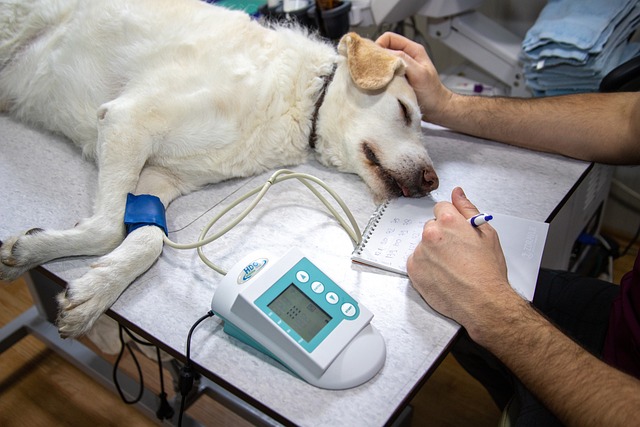There are several mental and social benefits of owning a pet. Your furry companion can help you relieve stress, manage anxiety, and stave off loneliness.
With so many perks of having a pet, finding a rental property that accommodates your beloved four-legged friend is essential.
While pets can be fun for their owners, they’re often a pain to landlords, and some even have a strict no-pet policy.
Although that limits where pet parents can stay, you should avoid jumping at any listing willing to allow furry friends.
If you’re a pet owner looking to invest in a pet-friendly home, you’ll need a comprehensive run-through to help you avoid pitfalls.
This article is the ultimate guide for tenants looking for a pet rental. Let’s dive in.
Contents [show]
Common Rules and Regulations for Pet Ownership in Rentals
1. Pet Deposits or Fees
Expect property owners with an open-door policy for pets to request specific fees in return. Many rental properties require tenants with pets to pay a pet fee, which protects against any potential damages during the tenancy.
Often this fee is non-refundable despite landlords charging for this service upfront with your security deposit.
It’s crucial to remember that landlords often require compensation for accommodating pets because they might have to deal with pet owners who don’t pick up after their animals and noise complaints from other tenants.
Most of all, pets will likely cause tear damage through wall scratches or tainted carpets and drapes.
2. Size and Breed Restrictions
Another familiar rule property owners might enforce are restrictions on size and breed. This policy typically applies to dogs, as bigger canines and certain species carry the stereotype of being more violent and more likely to cause damage.
However, if your pet doesn’t meet the weight, height, or breed requirements, you don’t necessarily have to give up an apartment you like.
Landlords impose such limitations to protect their investments, so if you can sell your pet as the ideal well-trained companion, they might be willing to let you stay.
On the other hand, their liability concerns might be too significant, and you have to understand that selling your case could be futile.
3. Vaccination and Licensing
Landlords often require proof of up-to-date vaccinations and pet licensing to ensure they are in good health and compliant with local regulations.
Tenants may need to provide documentation from a veterinarian to satisfy these requirements. Some property owners also request a letter from your pet’s vet to certify that you are diligent with your furry friend’s medical care.
Property owners will typically add a clause or addendum for pet owners where they accept all responsibility for any pet-related damage to the property.
Signing a rental agreement means taking the need to repair or replace any item in the house that is due to your pet. That could mean paying a larger security deposit or an upfront pet fee.
Besides property damage, tenants must also accept responsibility for potential injuries to other residents.
Hence, some landlords insist on liability insurance that covers any incidents pets may cause. Bay Property Management Group can discuss additional fees to comply with your rental agreement and promote a conducive living environment.
5. Pet Etiquette and Behavior
Emphasize your willingness to adhere to all rental property regulations, including those that enforce pet etiquette and behavior rules.
The landlord or condominium board may have strict noise regulations to minimize disturbance to neighbors, proper waste disposal, and leash laws.
Point out that you share their concerns and any pet training classes you’ve registered for to put their mind at ease.
Remember that tenants must ensure their pets are well-behaved and adhere to these guidelines to maintain a harmonious living environment for all residents.
Things to Consider when Choosing a Pet-Friendly Rental
Flooring
When selecting a pet-friendly rental, consider the type of flooring in the property. It’s a lot easier to adhere to pet policies for rentals when the apartment has more durable features.
Opt for rentals with pet-friendly flooring options such as tile, vinyl, or hardwood floors, which are more resistant to scratches and easier to clean in case of accidents or pet-related messes.
The last thing you want is to try and get pet stains out of thick wool carpets or laminate floors.
Partially Furnished Homes
Choose an unfurnished or partially furnished rental to reduce the chances of pet damage.
Since pet owners need to accept liability for any scratches, stains, or dents their animals cause, opting for an apartment with fewer accessories would be beneficial.
You can make do with a patch on your couch or carpet, but the reduced value will negatively affect a landlord looking to lease the apartment to another renter.
On the other hand, if you customize your space with more pet-friendly furniture, you reduce the risk of damage to the landlord’s belongings.
Unfurnished rentals also provide more flexibility in arranging the living area to accommodate your pet’s needs.
Documentation for Landlords
Having proper documentation can enhance your chances of securing a pet-friendly rental. Obtain written references from previous landlords that vouch for your responsible pet ownership.
Additionally, provide documentation of your pet’s updated vaccinations, licensing, and spaying/neutering.
This act demonstrates your commitment to being a responsible pet owner and can help alleviate landlord concerns.
It also reduces the chances of any conflict and ensures the rental property remains suitable and accommodating for your furry friend.
Considering these factors when choosing a pet-friendly rental can help create a safe and comfortable environment for you and your furry companion.
It ensures that the rental property is suitable for pets and that you can enjoy a pleasant living experience while providing the best care for your pet.
Conclusion
In conclusion, finding a pet-friendly rental requires careful consideration of various factors to ensure a comfortable and suitable living environment for you and your furry friend.
Adhering to common rules about pet deposits, damage, and etiquette can help you enjoy a more pleasant living experience while providing the best care for your companion.
Besides, considering aspects such as pet-friendly flooring, opting for unfurnished or partially furnished homes, and providing proper documentation for landlords can significantly enhance your chances of finding the perfect pet-friendly rental.
With this guide, you can confidently find a pet-friendly rental, making the search for your new home a breeze.













